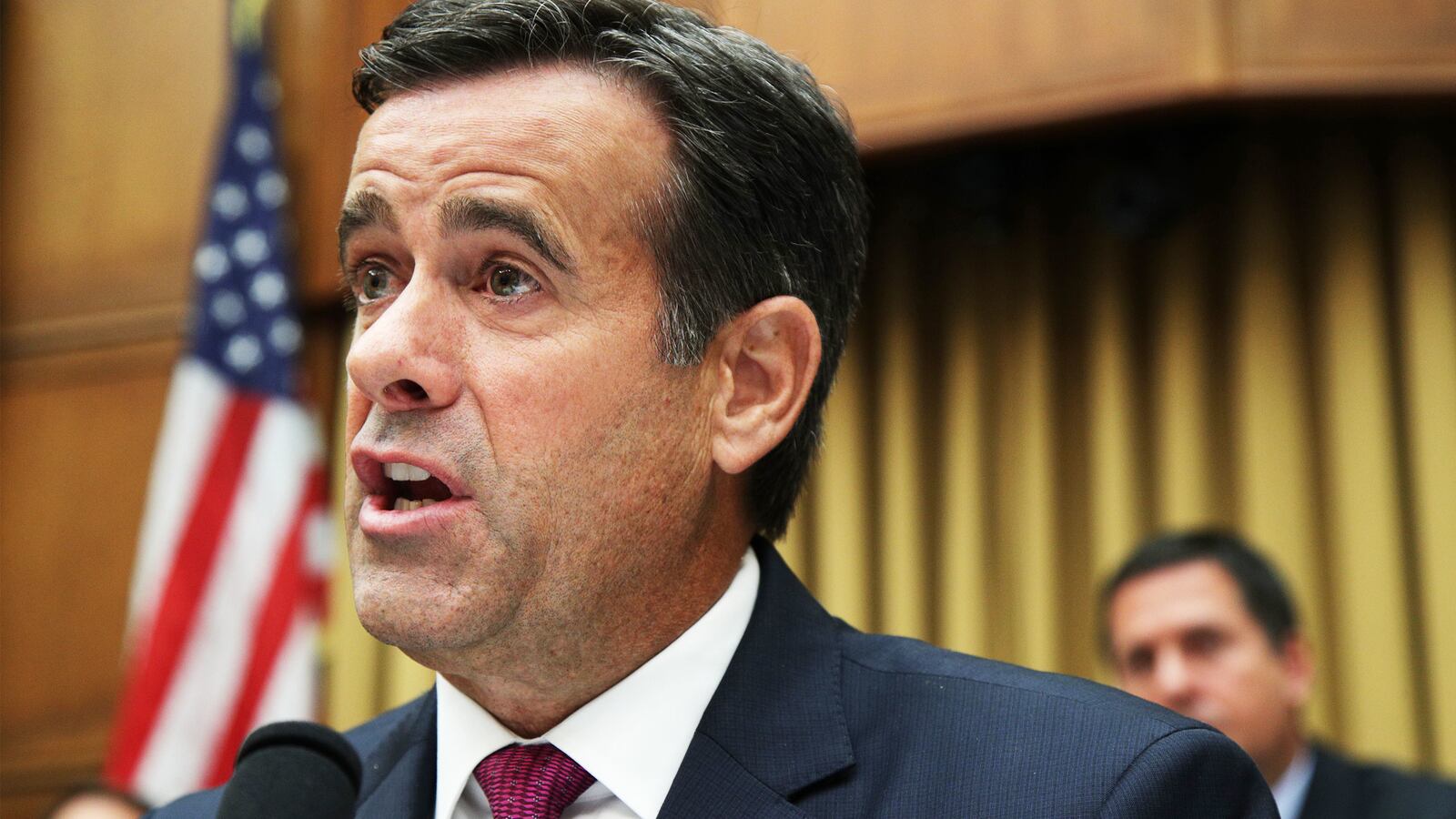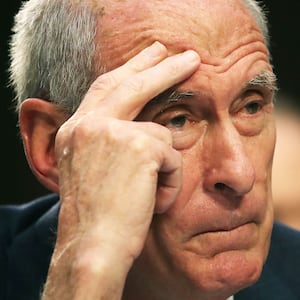Donald Trump’s new pick for director of national intelligence played a role last year in popularizing what briefly became one of the right’s most easily debunked conspiracy theories about the investigation into the president and Russia, offering what he presented as evidence of an anti-Trump “secret society” operating within the FBI.
Rep. John Ratcliffe (R-TX), a member of the House Judiciary Committee, has been an outspoken critic of the FBI’s investigation into contacts between Trump’s campaign and Russia before the 2016 election. Like other Republicans, he seized on text messages between FBI officials Lisa Page and Peter Strzok, who were having an affair, as proof that the FBI had been biased against Trump in the run-up to the election.
One of Ratcliffe’s biggest contributions to the Republican pushback on the investigation came in January 2018, when he claimed he had seen text messages between Page and Strzok that suggested the existence of a “secret society” working against Trump. But Ratcliffe’s claims, which were subsequently amplified by pro-Trump media outlets, fell apart when the fuller text exchanges became public.
Ratcliffe’s congressional office didn’t respond to a request for comment.
Ratcliffe was also accused Tuesday of embellishing his record in an anti-terrorism case. ABC News reports that he has repeatedly misrepresented his role in the high-profile case, claiming he had been appointed as a “special prosecutor” in 2008 to help secure convictions for funneling money to Hamas, which is a designated terrorist organization.
The congressman, who did serve as a terrorism prosecutor and U.S. attorney in the Eastern District of Texas, has used the Holy Land Foundation conviction to boost his anti-terror credentials, but court records and lawyers involved in the case suggest he had no direct role in the prosecution.
A spokesperson for Ratcliffe told ABC News that his involvement in the case was actually in conducting an investigation outside of the court proceedings, but said she could provide no further details “because the investigation did not result in any charges.”
Ratcliffe, who was tapped by Trump to succeed the departing Dan Coats, first made the FBI “secret society” claim during a Jan. 22, 2018, appearance on Fox News.
“We learned today about information that in the immediate aftermath of his election, there may have been a ‘secret society’ of folks within the Department of Justice and the FBI, to include Page and Strzok, working against him,” Ratcliffe said. “I’m not saying that actually happened, but when folks speak in those terms, they need to come forward to explain the context.”
According to then-Rep. Trey Gowdy (R-SC), who appeared alongside Ratcliffe on Fox News that day, it was Ratcliffe himself who was responsible for discovering the supposedly incriminating text messages. Ratcliffe followed that cable-news appearance by promoting his claim on Twitter, saying the text messages were proof of “manifest bias” at the top of the FBI.
“The texts between Strzok and Page referenced a ‘secret society,” Ratcliffe tweeted.
While he was making these claims, Ratcliffe never described the full text message he was quoting from. Still, right-wing media picked up on his explosive notion of an anti-Trump cabal inside the FBI. The Daily Caller declared that Ratcliffe had found proof of an “Anti-Trump ‘Secret Society’ at FBI.”
“FBI CONSPIRACY?” tweeted Fox News host and Trump confidant Sean Hannity, who later deleted the tweet.
A day after Ratcliffe’s initial claim on Fox, Sen. Ron Johnson (R-WI) moved the conspiracy further, claiming that Republican investigators had learned of meetings of an off-site “secret society” from an “informant.” Johnson eventually had to back down from his proclamation, saying he had only heard the term from the Strzok-Page text messages.
Despite the excitement that greeted Ratcliffe’s claims among Trump supporters, the actual “secret society” text message turned out to be less sinister than initially suggested. ABC News published the full text message two days after Ratcliffe made his viral Fox appearance, revealing that the “secret society” text referenced calendars of a “beefcake” Vladimir Putin that Strzok was giving out as gifts to people who worked on the Russia investigation.
“Are you even going to give out your calendars?” Page wrote. “Seems kind of depressing. Maybe it should just be the first meeting of the secret society.”
Shortly after the ABC story broke, discussion about an anti-Trump “secret society” largely disappeared from right-wing media.
Even Johnson, one of the “secret society’s” most enthusiastic promoters, conceded there was a “real possibility” that Page’s text message was a joke. Ratcliffe himself appears to have abandoned the claim, at least publicly. He hasn’t tweeted about it since he first pushed it in January 2018.
Ratcliffe may have caught Trump’s eye during his hostile questioning of Robert Mueller last week, but if the Fox News favorite is to take up one of America's most prominent intelligence roles he will have to overcome a confirmation process that is expected to be rocky.







